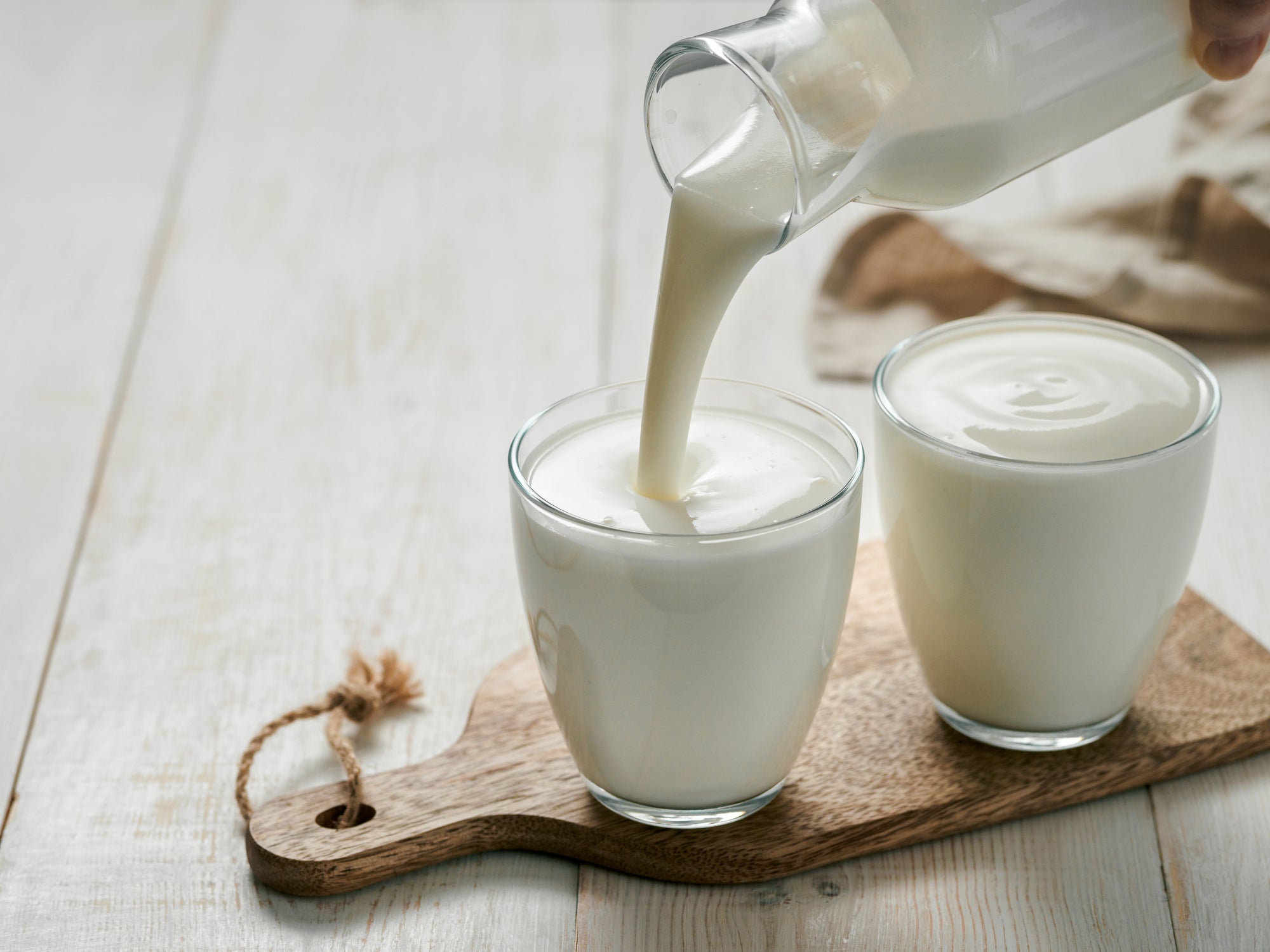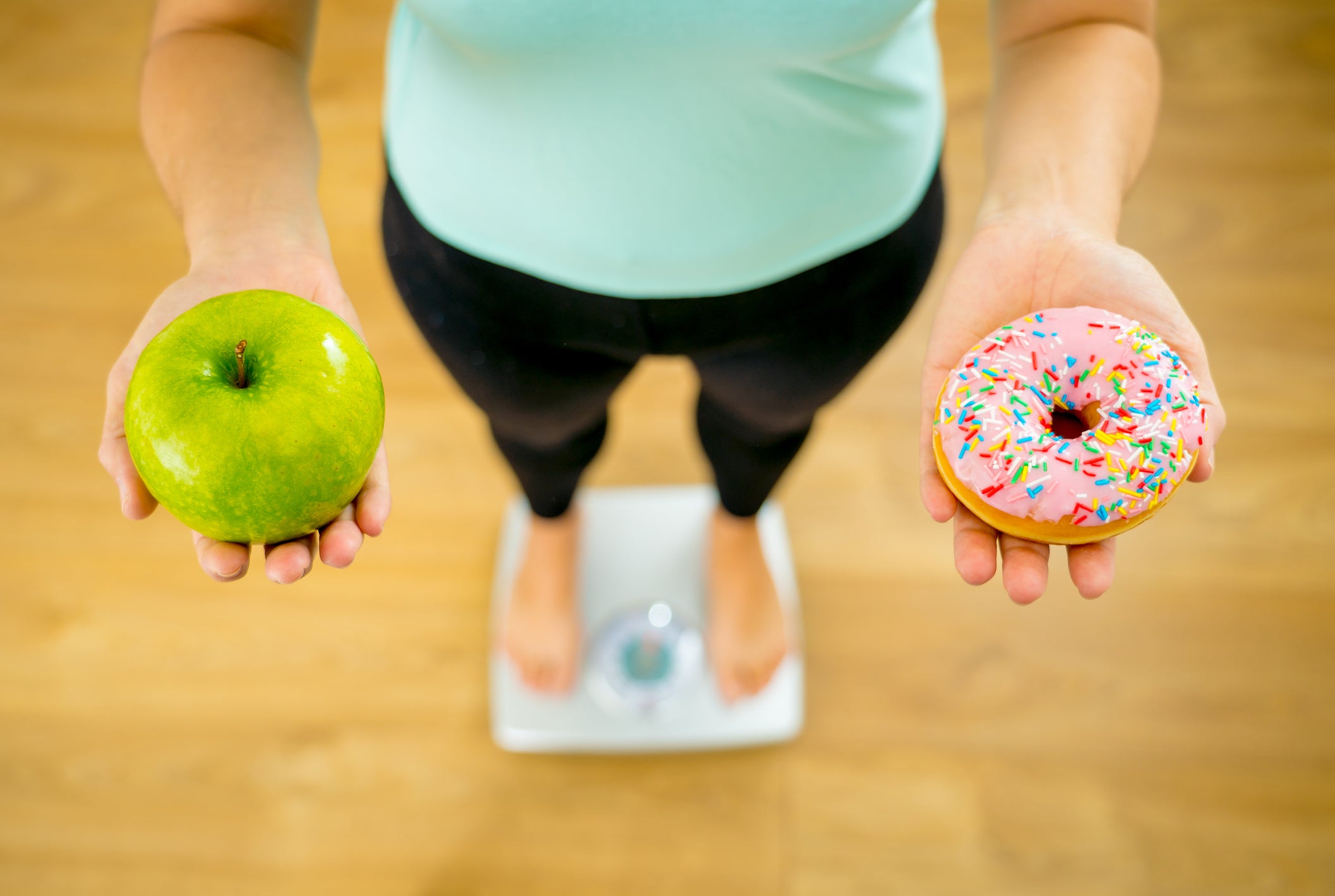Gut health reset: eight ways to improve your microbiome and take inches off your waist
You may know that bacteria in your gut can affect your immune system, digestion and even your mood. Now, research shows it could also help shrink your belly fat. In part two of our gut health reset plan, Anna Magee speaks to leading scientists to show you how

In recent years, pimping the bacteria in our intestines with probiotic foods and supplements has become an obsession with the health conscious. Celebrities such as Gwyneth Paltrow, basketball legend LeBron James and tennis star Serena Williams have waxed lyrical about improving the state of their microbiomes and how it has affected their digestion, energy and wellbeing. The market for probiotic foods and supplements has soared and is now estimated to reach $131bn (£102bn) by 2032.
We’ve seen a growing body of evidence showing that our gut microbiomes can impact our immune systems, energy, skin, digestion and, increasingly, our moods. “Our microbes release chemicals that interact with various organs in the body, meaning they can impact several functions, from the immune system to metabolic health and mental health,” says Tim Spector, professor of genetic epidemiology at King’s College London and scientific co-founder of Zoe, an app-based personalised nutrition programme that tracks people’s blood sugar, lipids and microbiomes.
Spector and his team have worked extensively in the areas of gut health for the last decade. Now, they have found the bacteria in our gut can even influence the size of our gut.
Belly fat that surrounds your organs is called “visceral fat” and it’s linked to an increased risk of diseases, like type 2 diabetes, heart disease and high blood pressure. A study published in 2019 in Nature Medicine by scientists on Spector’s team at King’s College London identified 100 “good” and “bad” gut microbes and a number of species associated with increased visceral fat.

Additionally, research from 2020 published in the Computational and Structural Biotechnology Journal also suggested that having a poorer gut microbiome is associated with greater amounts of visceral fat predisposing people to cardiovascular disease – these were also associated with the consumption of highly refined carbohydrates and processed meats, more on that later. “Specific microbial species and pathways which were closely associated with visceral fat accumulation might contribute to new targeted therapies for metabolic disorders in the future,” the authors said.
“We found a clear association between the microbiome and visceral fat mass,” says Dr Sarah Berry, associate professor in nutritional sciences at King’s College London and chief scientist at Zoe. “There’s also been studies where people with normal BMI but higher tummy fat have been found to have a different microbiome composition than those without excess tummy fat. So there is something going on in the microbiome that is specifically related to fat around the middle.”
How does that work? “Our gut microbiome contains trillions of microbes that work together to create chemicals for us including vitamins and hormones, which act like a personal pharmacy,” says Spector. “One of the most exciting findings of gut microbiome science is the relationship between the microbes and our metabolic health. Microbes we have in our gut directly impact how much belly fat we’re likely to have, so it’s worth understanding more about our gut health.”
In terms of identifying the specific microbes that influence belly fat, it’s early days in the research, says Dr Berry. “But it’s exciting from a treatment perspective that in time we could identify the specific bacteria that can lead to belly fat and vice versa. So far, what we know is that a healthy microbiome can mean reduced belly fat.”
The lifestyle changes study participants made toward a healthier, less inflammatory microbiome were also associated with reduced fat around their middles. So, for day two of our reduce your waist, improve your health series, The Independent has teamed up with Professor Spector’s team to bring you advice on some of the things they did.
Eight ways to improve your gut health to reduce your waist

Any change counts
It’s tempting to think that changing your microbiome will take years as it takes years to grow it, after all. But the opposite is true. “What you eat influences your microbiome within the same 24 hours and the peak change occurs three days later,” says Dr Berry. That means if you shift your diet with these positive changes, within three days you’ll have a change in your gut microbiome. “Your microbiome changes day to day, it changes hour to hour.”
Go food first
There’s unlikely to be a probiotic supplement out there that can fix an unhealthy microbiome. “If you want to modify your microbiome, it’s better to do it primarily through food,” says Dr Berry. “If you try and modify it through taking a supplement you have to be taking it every day because your gut bacteria changes so quickly. If you’re choosing food and having a bit of kefir or kimchi [fermented foods] every day you’re feeding your bugs and are more likely to sustain the changes in your microbiome.” Twelve weeks is plenty of time to also see a knock-on impact on your health.
Avoid the gut annihilators
“By far the most serious threat to your gut bacteria is antibiotics,” says Dr Federica Amati, nutrition topic lead at Imperial College London School of Medicine, head nutritionist at Zoe and author of Every Body Should Know This. “They can decimate your microbiome. With that said, always take antibiotics as your doctor prescribes them, there is no doubt that these drugs save lives.
“Beyond antibiotics, consuming large amounts of ultra-processed foods – high in emulsifiers, artificial sweeteners and other additives – is linked to a poorer gut microbiome. Also, alcohol, and beer in particular, can negatively impact these microbes [see Day 3]. Other foods linked to a less healthy gut microbiome are refined sugar, fried foods and red meat.”

Watch the ultra-processed foods
Ultra-processed foods (UPFs) deserve a special mention when it comes to gut health. They’re created with industrial production processes, colours, additives, preservatives and other artificial ingredients. One of the chief concerns about them is that their artificial ingredients and the way they are made are not recognised by the body, so it responds with increased fat and inflammation.
But UPFs affect your waistline in an indirect way too, by affecting your gut bacteria balance, say King’s College’s scientists. The specific microbes found in the belly fat group in their Zoe method study were associated with increased intakes of processed meats like ham, sausages and bacon and refined carbohydrates.
Diets high in UPFs are also low in fibre, which is essential for the growth of the microbe species diversity we need in the gut for health. Plus, certain food additives like polysorbate 80 have also been shown to impact on the diversity of bacteria in the gut affecting digestion and the uptake of nutrients from food.
Keep the skins on potatoes
Eating fibre is hugely important for gut health. It works as a prebiotic, which means it feeds the healthy bacteria in the gut, helping it to grow and proliferate, making it as essential as the bacteria itself. “We could have all of these bacteria species down there, but if we’re not feeding them, then they’re not going to produce all of the great chemicals that they produce that allow them to have a beneficial impact on our health. Fibre’s essential because it feeds the microbiome,” says Dr Berry.
But what kind – soluble? Insoluble? “It doesn’t matter. What matters is variety. Choose from vegetables, whole grains, pulses, nuts, seeds, vegetables, mushrooms, fruits, lentils, beans, spices and herbs”. And if you can, leave the skin on. “Any unrefined plant-based foods will have fibre because fibre is the plant’s cell walls – the skin on apples, the outside of almonds, that’s all fibre. Now if you over-refine it, you get rid of a lot of the fibre. So if you take potatoes for example, if you have them with the skins on, you’ve got the fibre. Once you start peeling vegetables, you’re starting the refinement process and losing the fibre.”
Eat 30 different plants a week
“For gut health, we need to prioritise diversity over quantity,” says Dr Amati. “We advise people to try and eat 30 different types of plants each week. And at this stage, while we don’t know how to specifically reduce bacteria linked to visceral fat, we do know that if you eat a diverse plant-based diet, the ‘good’ bacteria will eventually win out, and the numbers of ‘bad’ microbes will naturally decline.”
Thirty plants a week might sound impossible, but it doesn’t just mean vegetables and fruit. Plant foods also include anything unrefined from a plant like herbs, spices, green tea, plant-based oils like olive and avocado, almond, soy or coconut milks, legumes, pulses and plant-based snacks like hummus, guacamole and salsa (even coffee and dark chocolate count).
Go plant-based (not necessarily vegan)
Does this mean a vegan diet is better for gut health? Not necessarily, and definitely not if it’s ultra process. Saying that ‘there is a large body of evidence that supports a plant-based diet being better for us,” says Spector. “My own research into this with the British and American Gut project found that eating 30 or more plants a week is associated with better health, regardless of dietary preference for veganism, pescatarian, vegetarian or meat eating.
“Including protein sources into your meals can help with satiety levels and therefore may help with weight management, but people in the UK generally consume more protein than they need,” Spector continues. “Focus on including plant proteins into your diet where you can, including nuts, seeds, beans and pulses, as these will provide a broader range of nutrients, including fibre, to support your gut microbiome.”

Hate sauerkraut? Some cheeses are fermented too
What about those essential fermented foods we need to consume daily; smelly things like kefir (fermented milk drink) and sauerkraut (fermented cabbage), which some people don’t like?
“Not everyone enjoys the taste of fermented foods like kimchi or sauerkraut,” says Dr Amati. “But eating fermented foods daily is essential to populating the gut with good bacteria. So, try adding a small amount to a salad or soup, gradually increasing the portion size over time. You might grow to love them. But if not, yoghurt is a great option. Opt for full-fat, Greek-style yoghurt without flavourings and other additives.”
And, here’s the good news, some cheeses are good for your gut. “People may not realise that some cheeses are fermented, too, including parmesan, mature cheddar and mozzarella. Similarly, coffee and chocolate are made by fermenting beans. If you choose relatively unprocessed dark chocolate – at least 70 per cent cocoa – a couple of squares can count toward your fermented food tally.
“Eating one portion of fermented food each day is likely to help support your gut microbiome. As ever, diversity is key, so feel free to experiment with different types.”
Part three tomorrow for lifestyle and exercise advice to reduce your waist size, from the King’s College team and leading UK personal trainer Matt Roberts






Join our commenting forum
Join thought-provoking conversations, follow other Independent readers and see their replies
Comments